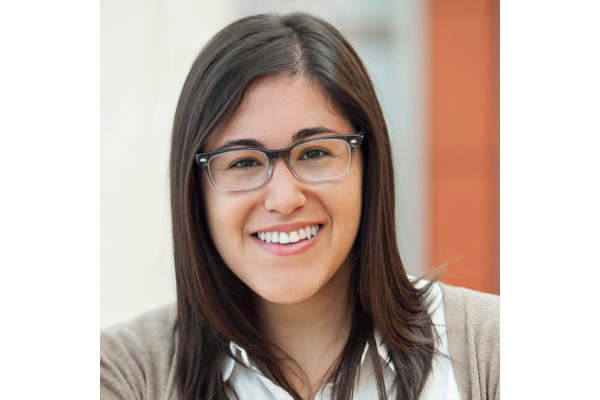Q&A with Dr. Kate Rosenblatt

Dr. Katherine Rosenblatt first got to know Emory faculty and students as a TIJS Visiting Assistant Professor from 2017-2020. She received her PhD from the University of Michigan, specializing in modern Jewish history, modern US history, and women and gender studies. She will be starting her position at Emory in fall 2021 after the completion of a yearlong fellowship at the University of Pennsylvania’s Katz Center for Advanced Judaic Studies. Rosenblatt will hold a joint appointment as Assistant Professor in TIJS and in the Department of Religion in the area of Modern Jewish Religious Cultures. This fall she will be teaching a course on Religion and the U.S. Constitution.
What are you primary areas of research? When and how did you first become interested in these particular areas?
My primary areas of research are in the history of modern American Judaism, American religion, and politics. I have always been intrigued and puzzled by claims of the separation of church and state in the United States, especially given that religion and politics seems to intersect nearly everywhere. As an undergraduate at Columbia, I wrote a senior thesis on the American Jewish rabbinate’s response to the crisis of the Vietnam War, which confirmed my suspicion that, far from being separate, religion and politics are quite comfortable bedfellows in American and American Jewish life. Almost all the work I’ve done since has continued to plumb this intersection and its implications.
Most recently, my work has centered on the complicated relationship between religion and the economy. If capitalism posits profit as the primary motivation in making economic decisions, my work suggests that American Jews frequently employed other criteria in charting their pocketbook politics. Many turned to their understandings of Jewish law and values to make decisions about how and where to invest and/or deploy their financial resources. Alongside a varied coalition of non-Jewish Americans, American Jews put forward an alternative expression of American capitalism by way of producer and consumer cooperatives across the 20th century. Agitating against the rise of capitalism in its most exploitative forms, these American Jews invested in cooperatives, firm in the belief that co-ops could be profitable, equitable, and in line with their Jewish commitments. In a moment when more and more Americans are asking hard questions about American capitalism and inequality in the 21st century, my work reminds us that such questions are far from new.
What sort of courses – undergraduate or graduate – are you most excited to offer at Emory?
I’m most excited to offer some of the courses that I’ve already taught here at Emory as a visiting professor! I am particularly partial to a course on Jewish Women in the Modern World. Another course that I’m looking forward to teaching again is American Jewish Popular Culture, which allowed us to use the tools of cultural history to understand the modern American Jewish experience. I’m also always interested in the intersection of religion and law, so another course I love teaching is Religion and the US Constitution, in which we attempt to make sense of the religion clauses of the First Amendment.
What is your teaching philosophy? What do you hope students will appreciate most when taking one of your classes?
In the classroom, my main commitment is to the processes of scholarly interpretation and knowledge production: conducting research, weighing evidence, offering interpretations based on primary sources, and engaging with and/or critiquing existing scholarly interpretations of the past. While I often contextualize and situate a topic for a given class session, I rarely give a traditional lecture. Instead, I devote class time to working through primary sources, often in small groups. Doing this work requires that we ask questions about the context in which such sources were created. How did a historical actor’s context and experience shape their perspectives about the past? The added benefit of this approach is that it opens pathways for us as a learning community to ask the same questions of ourselves. Just as we might inquire how a particular moment shaped the perspective of a historical actor in their time, how might our current perspectives shape how we make sense of the past and the present? And I hope that students will appreciate that I ask them to do this in a variety of formats: in-class presentations, blog posts, mock op-eds, museum exhibits, and podcasts, to name just a few.
What other kinds of activities do you enjoy? If you had an extra day in the week, how would you spend that time?
I love taking long walks with my two pups, gardening, and rowing (sweep and sculling). If I had an extra day in the week, I’d probably spend it reading in a hammock on my back porch!
Published 6/25/2021